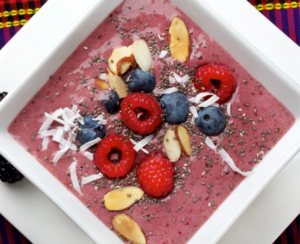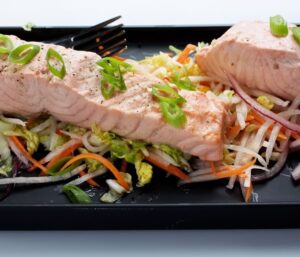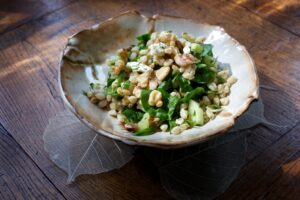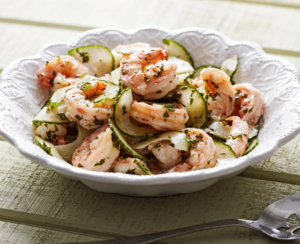When my daughter, Isabella, was 12 years old, she had to take a series of exams at school, nothing too high-stakes, but she was a little nervous about them. To prepare she did her part by studying and getting to bed early the night before, and, as the official house chef/nutritionist, I did mine by making sure she left home that morning with the best possible fuel. There are plenty of brain-food claims whirling about on the web, but to get to the truth and decide what to make her for breakfast I dug into the research to investigate. It turns out there are foods that just might help optimize our thinking power at any age — brain food.
A Balanced Meal
Rule number one: feed your head. The brain cannot store energy and needs a constant supply of it to function optimally. So the worst thing you can do for your mental performance is skip a meal; and the best thing you can do, it seems, is eat one that has a balance of carbohydrates, protein and fat.
While carbohydrate is the brain’s primary fuel and study after study, on everyone from children and college students to airline pilots and the elderly, show improvement on memory tests after eating carbs, it turns out that protein and fat have distinct roles in powering our brains as well. In a 2021 study published in Clinical Nutrition looking at how carbs, protein and fats effect cognition, researchers concluded that each enhanced performance on different kinds of tasks, possibly by unique mechanisms.
Scientists haven’t pinpointed the exact composition of an optimal “smart meal,” but from the dozens of studies I have read I am convinced that your best bet is a mix of slow-release carbs (like whole grains, whole fruit and vegetables), protein and healthy fat.
Blue, Red and/or Purple Fruit
The same compound that gives berries, cherries and grapes their brilliant pigment could also help keep us mentally sharp. It is called anthocyanin, a type of flavonoids which not only helps protect brain cells from damage, but also has been shown to facilitate the signaling systems responsible for acquiring and storing information.
It’s nice to know doing something as simple and delicious as putting blueberries on your morning cereal, snacking on red grapes or nibbling on cherries regularly could ultimately help you, say, find where you put your keys, pull off a top-notch presentation at work, or if you are like Isabella, ace your French test.
Green Tea
Another flavonoid-rich brain booster that has a lot of research behind it is green tea. The drink has been shown to protect the brain from decline with age, but it could also help people of any age process information better. A 2014 Swiss study involving 12 healthy men in their 20s found that those given green tea extract performed significantly better on tests, and MRI data indicated that green tea stimulated brain activity and enhanced connection between the different parts of the brain responsible for memory.
Green Tea-Poached Salmon With Napa Cabbage Slaw
Walnuts
Eating a handful of walnuts each day could help with sharpen memory, and boost the ability to concentrate better and think faster, according to a 2014 study published in The Journal of Nutrition Health and Aging. The study, which corroborates several animal studies, and was funded in part by the California Walnut Commission, looked at the eating habits of adults in the US, and found that those who ate more walnuts did better on a series of six cognitive tests. Researchers point to the nut’s antioxidants, vitamins and minerals as the reason, but especially call out the healthy fat they contain, a form of omega-3 called ALA.
Herbed Farro Salad with Walnuts, Feta, and Spinach
Mint
Aromatherapy might sound a bit new age-y but studies back the idea that different scents have different effects on our mood and mental state. When you want to think sharp, sniffing some peppermint could make a difference. In one study published in the International Journal of Neuroscience in 2008, participants exposed to the aroma of peppermint did significantly better on memory tests and reported feeling more alert than those exposed to ylang-ylang, or no aroma.
Shrimp Salad With Lime and Mint Dressing
Based on this information and my daughter’s preferences, her breakfast on test morning was oatmeal made with milk, topped with blueberries and walnuts. I packed her a little bag of grapes and muddled a few mint leaves in her water bottle to take to school. (I didn’t give her any green tea because it has caffeine and no 12 year old I know needs even a drop of that!) It’s possible these foods and drinks could have helped her test performance, but at the very least she was well nourished.







